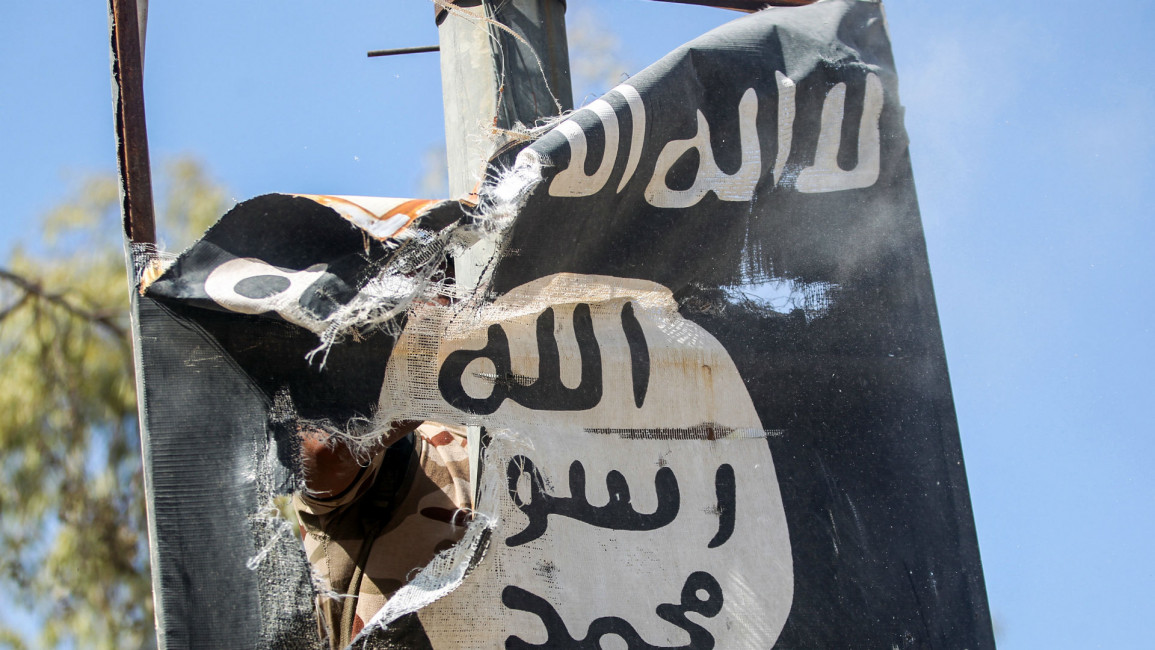Finnish minister apologises for Instagram poll on IS women, children
A minister from Finland has come under fire for an Instagram post where she asked followers for their thoughts on the repatriation of children born to Islamic State group-linked mothers.
The newly-appointed Finance Minister Katri Kulmuni posted a poll asking people to vote whether children should be repatriated with their mothers from the Al-Hol desert camp in Syria, where thousands of IS affiliates are based.
"Children only" or "Children and mothers", the post asked, prompting backlash online.
Kulmuni later deleted the post and issued an apology.
Syria's Kurds, after years of fighting the Islamic State group, are holding tens of thousands of civilians and IS relatives in camps for the displaced.
The United Nations said the Al-Hol camp's population last month stood at around 70,000 people.
These included more than 30,000 Iraqis, some 28,000 Syrians and over 10,000 foreign nationals - many of them relatives of alleged jihadist fighters being held in detention.
The Kurdish authorities have repeatedly called on Western nations to repatriate their nationals, but they have been largely reluctant, except in a handful of cases.
In June, they started sending home Syrian families that had fled their homes during battles against the jihadists from the overpopulated camp of Al-Hol.
Hundreds of western IS fighters have been sent home as part of a recent spate of repatriations, many of which were triggered by a Turkish decision to deport foreign IS members and suspects in Ankara's custody.
Also read: Baghdadi urges followers to 'rescue' jailed jihadists and families
The Kurdish forces have repeatedly urged Western countries to repatriate their citizens linked to IS, but until recently, many have refused to do so.
Last month, Germany said it was repatriating its first IS suspect, and that she and her three German children had crossed into Iraq on their way home.
Der Spiegel magazine named the mother as Laura H, and said she and her children had been living in the overcrowded Al-Hol camp for the displaced in northeastern Syria.
She is believed to have travelled to Syria from Giessen in central Germany in March 2016, and alleged to have joined IS that summer.
Germany had already brought home a handful of orphans, but no adults until Friday.
Austria, France and Belgium have also repatriated some orphaned children, while the United States has repatriated several women and their children. The United Kingdom announced earlier this week it would begin the repatriation of British orphans of IS fighters.
A French woman who took her three children to Syria to join the Islamic State group in 2014 was sentenced to 14 years in jail on Friday.
A Paris court convicted Jihane Makhzoumi of charges including terrorism and child abandonment.
Kazakhstan, Uzbekistan and Kosovo have also repatriated dozens of women and children.
Abysmal conditions
Last month, the International Rescue Committee (IRC) reported hundreds of children have died at the tent camp for the wives and children of suspected Islamic State group fighters, as well as other civilians.
Data from the humanitarian group shows that 339 children lost their lives due to disease and other conditions between December 2018 and September 2019 at Al-Hol camp.
The number of children aged-under-five who had died at the camp has doubled since March this year, owing at least in part to the terrible conditionsm the IRC added.
The report calls life a "purgatory-like existence" for the 70,000 currently living there, the vast majority of whom are women and children.
There are 7,000 children who are the progeny of foreign nationals, due to their parents' suspected membership of IS.
The appalling conditions have led to 406 recorded deaths, 339 of whom - over 80 percent - were children.
The IRC's report states that over a third of these deaths took place in tents, where children have no access to health facilities and the majority of cases are preventable.
It said the main causes of child deaths are severe malnutrition with complications and diarrhoea with dehydration and pneumonia - an indicator of the abysmal health conditions and the lack of humanitarian assistance.
The foreign section of the camp called the Annex is reportedly the worst part to live in, with few health services available despite the general improvement of the rest of the camp.
Residents here face extreme restrictions on their movement, with women sometimes forced to give birth alone in their tents.
The IRC fears that a "narrative of 'radicalisation' is hindering humanitarian access and the impartial delivery of aid to all those in need - including foreign women and children".
A third of all reported deaths of children in the camp occurred in the Annex.
Misty Buswell, Middle East Policy, Advocacy and Communications Director at the IRC urged the international community to "scale up" humanitarian services at Al-Hol camp, and advocated for the repatriation of the children of foreign nationals.
"The tragic increase in child deaths underscores the need for countries of origin to repatriate these children and ensure that they don’t become stateless, and for the international community to take the necessary steps to ensure the safety and wellbeing of these innocent victims of the conflict."
The Islamic State group captured large swathes of Iraq and Syria in 2014, fighting to carve out their own 'caliphate'.
The Syrian war began in 2011 after peaceful demonstrations against President Bashar al-Assad were brutally suppressed. Around 500,000 people have reportedly been killed in the war.
Follow us on Twitter and Instagram to stay connected



